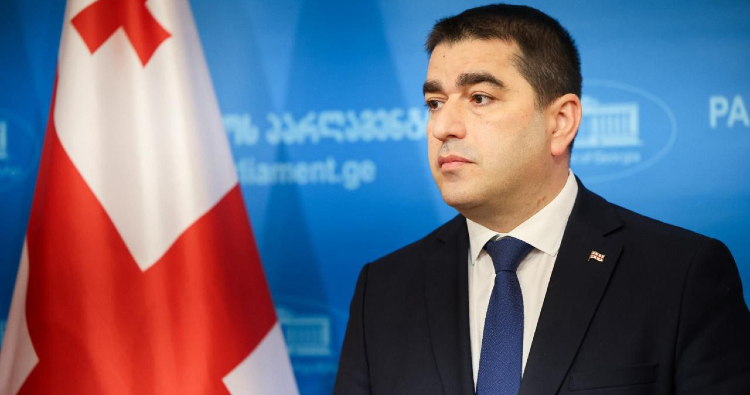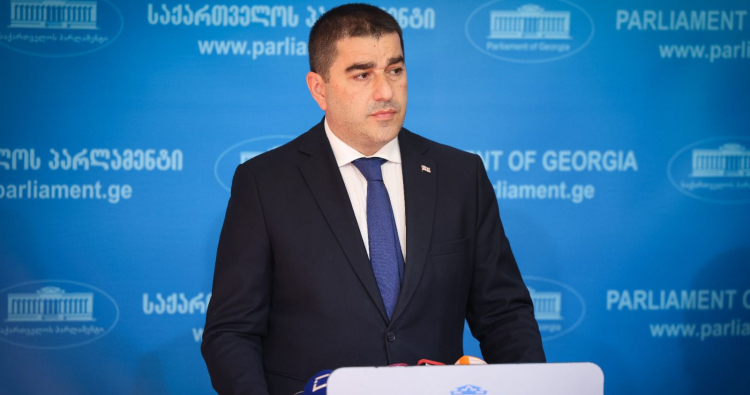Parliament Speaker claims UNM opposition “recognised as violent at international level” after ECHR ruling

Papuashvili also noted the controversial bill would make a “significant contribution to ensuring long-term peace and tranquillity” in the country and in depolarisation of the domestic political scene, which he noted was “one of the main demands” of the European Union towards Georgia in its integration process. Photo: Georgian Parliament
Georgian Parliament Speaker Shalva Papuashvili on Wednesday claimed the opposition United National Movement party was “recognised not only as a violent former Government but also as a violent opposition at international court level” after a European Court of Human Rights ruling that he said “confirmed the violent nature” of the party and established its “violent storming” of the Parliament building in the country’s capital Tbilisi in a case on protests of June 20, 2019.
Earlier, the ECHR ruled a similar ruling to the radical opposition in November 2019 in the case of illegal picketing of the Parliament. In a similar scenario, an attack on the Parliament and law enforcement officers has been carried out during the rallies in recent days”, he said.
The lawmaker said the ongoing rallies against the controversial domestic bill on transparency of foreign influence had “shown the protests have gone against the nature of peaceful protests”, and alleged attacks “not only on state institutions and law enforcement but also on citizens”, citing clashes between rally participants and other citizens during a blockade of the Heroes' Square in the capital as an example.
We see blackmail and pressure on distinguished members of society, athletes, artists. Consider how much pressure they are under to express the desired position of the UNM and rally participants [...] They have moved directly to censorship through terror methods, and if some word or phrase does not match, they move to additional moral terror directed at both these people and their family members [...] This is contrary to the culture of protest established in society”, he added.
Papuashvili added it was “important to morally evaluate the campaign of contempt, threats, blackmail, and pressure launched by the UNM”, including on social networks.
The official noted the ruling Georgian Dream party had a “responsibility to protect legitimate interests of citizens, law enforcement officers and prominent members of the society”, and added a decision had been made to create a “database where information on all individuals who are involved in violence, other illegal actions, threats and blackmail, or who publicly approve such actions” would be collected.
The Parliament Speaker added the database would be “placed on a special website and be public and transparent for Georgian citizens”, and noted “all measures” would be taken against these individuals within the constitution and the law, “so that violations of the law, violence and threats do not remain without response of the state or society”.
Papuashvili also noted the controversial bill would make a “significant contribution to ensuring long-term peace and tranquillity” in the country and in depolarisation of the domestic political scene, which he noted was “one of the main demands” of the European Union towards Georgia in its integration process.
The legislative initiative calls for registration of non-commercial legal entities and media outlets in the country as “pursuing the interests of a foreign power” if they derive more than 20 percent of their funding from abroad.
The bill has been reintroduced by the ruling Georgian Dream party after its retraction following protests last year, and has been met by criticism from the opposition, the domestic NGO sector and a part of Georgia’s foreign partner states and diplomatic representations.
 Tweet
Tweet  Share
Share



